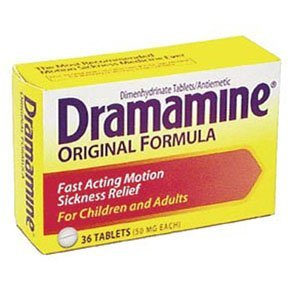You aren’t alone. Canines frequently experience motion sickness or unexplained queasy feelings.
 Here’s the deal:
Here’s the deal:
With that being said, natural solutions are preferred. Keep reading for everything you need to know!.
Can You Give a Dog Gravol/Dramamine for Anxiety?
Yes, Gravol/Dramamine is recommended for dogs’ anxiety. Due to its chemical makeup, it is the ideal treatment for dogs. Dimenhydrinate (Dramamine), a drug that people take to prevent motion sickness while driving, can be helpful for pets when all other options have failed.
These drugs have a CNS depressant effect, which can calm an agitated or fearful dog. It’s critical to realize that there is always a chance of medication interactions. Therefore, it’s imperative to visit your veterinarian before giving your dog any medication, even one as seemingly safe as Dramamine.
Speak To Your Vet: Is Dramamine An Appropriate Treatment For Your Dog?
Before giving your dog any sort of medication, whether it be a prescription drug or an OTC remedy, you should always consult with your dependable veterinarian. It’s crucial to have your dog’s entire medical history on hand when you take him in for a checkup, including any medications he may be taking at the time.
Additionally, be sure to discuss any signs or symptoms that you have noticed if you have any specific questions regarding his condition. After performing a physical examination on your dog, your veterinarian will be able to identify the underlying cause of his symptoms and determine whether they are due to motion sickness alone or are a sign of another underlying medical condition.
Understanding The Medication: What Is Dramamine?
Dramamine® (generic name Dimenhydrinate) is an antihistamine and an antiemic drug that is commonly used by humans to regulate the symptoms of motion sickness. The primary active ingredient, Dimenhydrinate, may be regarded as a weaker form of diphenhydramine (the main ingredient found in most U.S. Benadryl® allergy products). Dimenhydrinate is actually a combination of diphenhydramine and a mild stimulant known as 8-chlorotheophylline, which helps to inhibit drowsiness and sedation.
The inner ear-based vestibular system of the brain, which detects motion, is stimulated less as a result of this medication’s action. The neurotransmitters blocked by dramamine prevent information from the vestibular apparatus (middle ear) and inner ear from reaching the area of the brain responsible for controlling reflex actions (like vomiting and swallowing). When the vestibular system is overstimulated excessively, both humans and dogs may experience nausea, vomiting, dizziness, and stumbling.
Even though the FDA has not approved dimenhydrinate for use in animals, veterinarians may legally prescribe it as an off-label medication. Although it is typically given to dogs to treat motion sickness, it has also been used as a sedative and to treat general anxiety in dogs by veterinarians. It may also be prescribed by your veterinarian to treat nausea that is unrelated to motion sickness, such as signs of inner ear (vestibular) disease, which is common in older dogs.
FAQ
Can you give dogs Dramamine to calm them down?
When all else fails, pets can benefit from the same medication that people use to prevent motion sickness while driving, dimenhydrinate (Dramamine). At least an hour prior to car travel, medium to large dogs should receive 25 to 50 milligrams of Dramamine, while cats and small dogs should receive about 12 milligrams. 5 milligrams.
What can I give my dog for anxiety?
…
Supplements for dog anxiety
- L-theanine.
- Magnolia extracts.
- Phellodendron extracts.
- Whey protein concentrate.
- Thiamine.
- Alpha-casozepine.
What happens if you give a dog Dramamine?
Suppose you accidentally give your dog a little too much Dramamine, Dr Sedation symptoms, such as excessive sleepiness, sluggish reflexes, and sluggish behavior, are warning signs, according to Fry. Dry mouth and difficulty urinating can also occur on occasion.
How much Dramamine should I give my dog?
Dog Dramamine Dosage Typically, doctors advise giving dogs 2 to 4 mg of Dramamine per pound of body weight, no more than once every eight hours. It’s best to administer the medication to dogs at least 30 minutes before departure.
